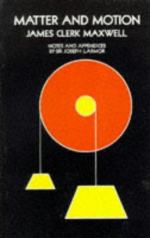|
This section contains 539 words (approx. 2 pages at 300 words per page) |

|
In ancient Greece, some philosophers, most notably Heraclitus, believed that everything in the world was in a state of fluctuation. Others argued that there must be some permanence, otherwise it would not be possible to see anything as being real.
The fifth-century Greeks were apparently the first to attribute structure to matter. They postulated that matter consisted of very small particles that were firmly bound together in the solid state, but that could change position to accommodate compression and deformation. At higher temperatures, these particles were thought to slide past e ach other and to eventually separate, as the material object underwent melting and evaporation. The Greeks called these particles atoms, Greek for indivisible. This philosophical position offered a reconciliation between the views of a world in fluctuation and one that is permanent.
In 1687, Isaac Newton published his Principia, in which he described his laws of motion. As...
|
This section contains 539 words (approx. 2 pages at 300 words per page) |

|


